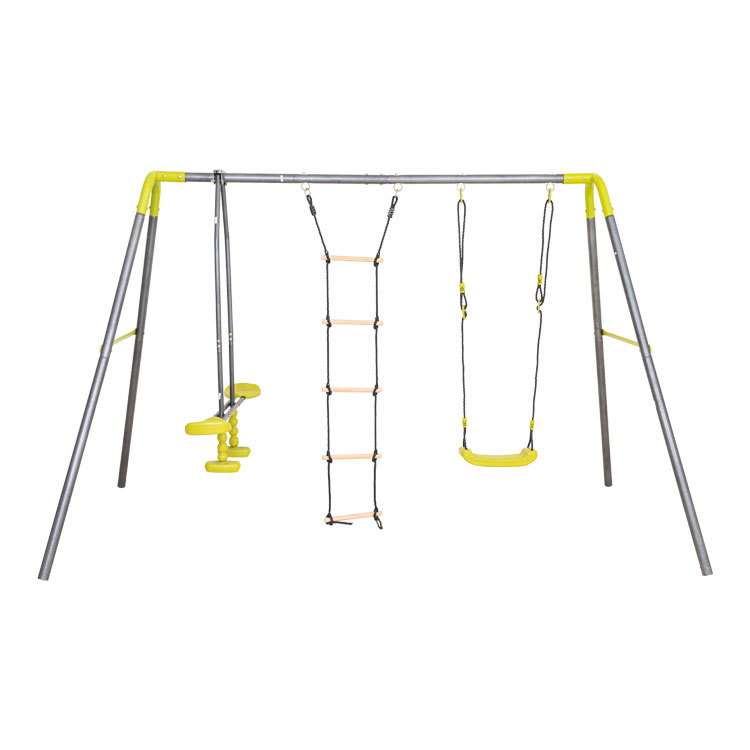Safe and Sturdy Swing for Children Tree Park Backyard
2024-07-10
When choosing a safe and sturdy swing for children to use in a tree park or backyard, several factors should be considered to ensure both safety and enjoyment. Here are key points to keep in mind:
Factors to Consider
1. Material and Construction:
- Metal or Heavy-Duty Plastic: Opt for swings made from durable materials that can withstand outdoor conditions, such as stainless steel, powder-coated metal, or UV-resistant plastic.
- Weather Resistance: Ensure the materials are resistant to rust, corrosion, and fading from sunlight exposure.
2. Safety Features:
- Secure Attachment: Choose a swing with strong, reliable attachments, such as heavy-duty chains or ropes and sturdy hooks or hangers.
- Safety Seats: For young children, consider swings with safety seats that have high backs, leg holes, and secure harnesses to prevent accidental falls.
3. Swing Design:
- Single vs. Multi-Seater: Depending on the space and intended use, decide between single-seat swings or multi-seater swings like gliders for cooperative play.
- Adjustable Heights: Opt for swings with adjustable chains or ropes to accommodate different heights and ages of children.
4. Comfort and Durability:
- Smooth Edges: Ensure all parts of the swing are smooth and rounded to prevent injuries.
- Comfortable Seats: Choose swings with comfortable, ergonomic seats that provide adequate support.
5. Installation and Maintenance:
- Installation Safety: Follow manufacturer instructions carefully for proper installation, ensuring the swing is securely anchored to a sturdy structure like a tree branch or a robust swing set frame.
- Regular Inspection: Periodically inspect the swing for signs of wear, damage, or loosening attachments. Tighten bolts and replace worn-out parts promptly.
6. Accessibility and Inclusivity:
- ADA Compliance: Consider swings that meet ADA (Americans with Disabilities Act) accessibility guidelines, ensuring inclusivity for children of all abilities.
- Accessible Design: Choose swings with accessible features such as easy-to-grip handles or adapted seats for children with physical disabilities.
Types of Swings
- Traditional Swings: Standard swings with single seats suspended by chains or ropes.
- Toddler Swings: Bucket-style seats designed for younger children with safety features like high backs and leg holes.
- Glider Swings: Two-seater swings that move back and forth in a seesaw motion, encouraging cooperative play.
Installation Tips
- Location: Select a flat, level area with sufficient clearance around the swing to prevent collisions with obstacles.
- Safety Surface: Install the swing over a soft, impact-absorbing surface like mulch, sand, or rubber mats to cushion falls.
- Weight Capacity: Ensure the swing can safely support the weight of children who will be using it.
By considering these factors, you can choose a safe and sturdy swing that provides children with a fun and enjoyable outdoor play experience in a tree park or backyard setting. Regular maintenance and adherence to safety guidelines will help ensure years of safe use.



